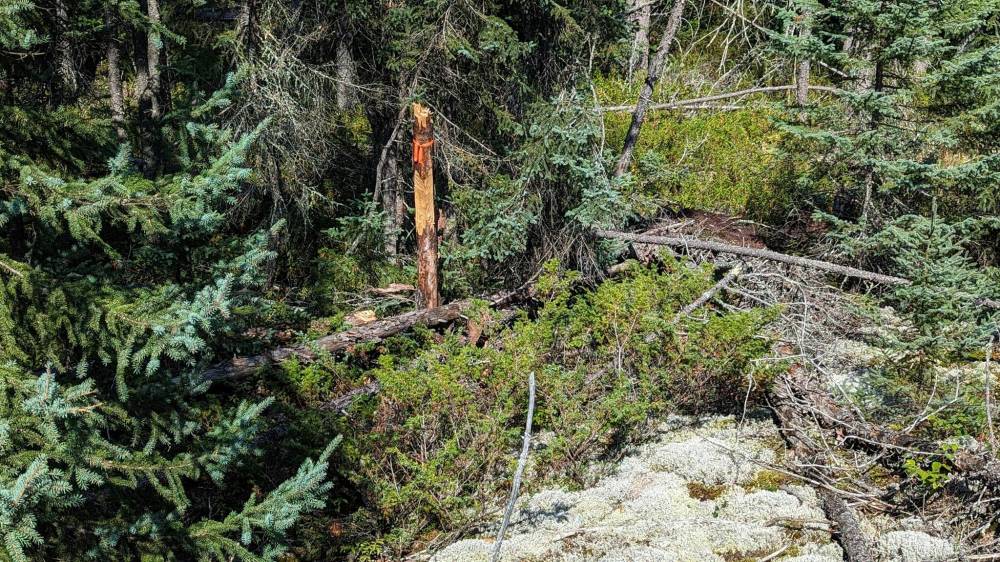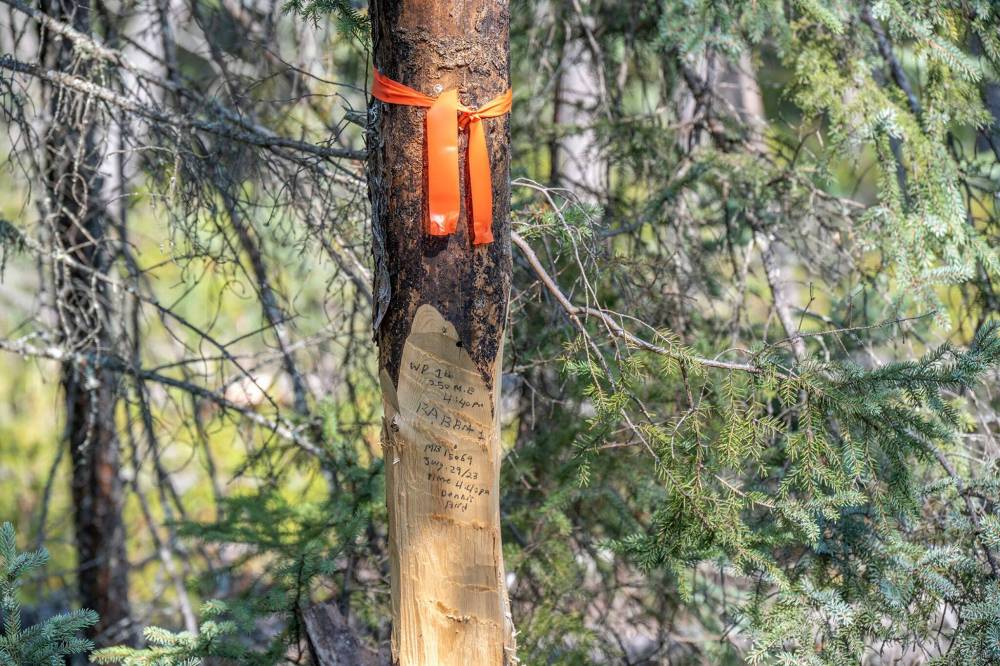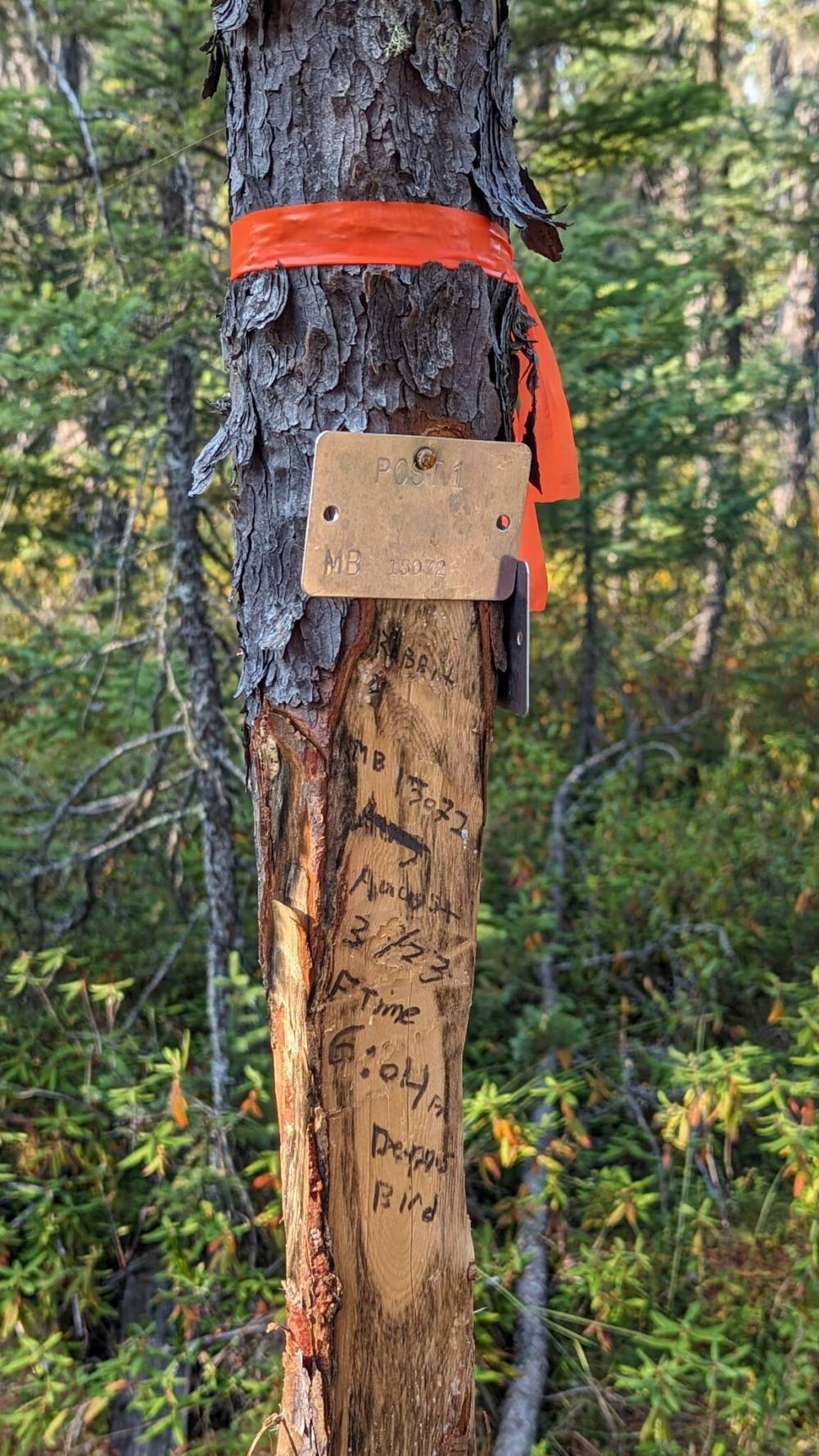Mining company stakes claims in protected caribou habitat
Nopiming backcountry exploration application will be rejected
Advertisement
Read this article for free:
or
Already have an account? Log in here »
To continue reading, please subscribe:
Monthly Digital Subscription
$1 per week for 24 weeks*
- Enjoy unlimited reading on winnipegfreepress.com
- Read the E-Edition, our digital replica newspaper
- Access News Break, our award-winning app
- Play interactive puzzles
*Billed as $4.00 plus GST every four weeks. After 24 weeks, price increases to the regular rate of $19.00 plus GST every four weeks. Offer available to new and qualified returning subscribers only. Cancel any time.
Monthly Digital Subscription
$4.75/week*
- Enjoy unlimited reading on winnipegfreepress.com
- Read the E-Edition, our digital replica newspaper
- Access News Break, our award-winning app
- Play interactive puzzles
*Billed as $19 plus GST every four weeks. Cancel any time.
To continue reading, please subscribe:
Add Free Press access to your Brandon Sun subscription for only an additional
$1 for the first 4 weeks*
*Your next subscription payment will increase by $1.00 and you will be charged $16.99 plus GST for four weeks. After four weeks, your payment will increase to $23.99 plus GST every four weeks.
Read unlimited articles for free today:
or
Already have an account? Log in here »
Hey there, time traveller!
This article was published 12/09/2023 (770 days ago), so information in it may no longer be current.
An Ontario-based company staked “illegal” exploration claims in protected caribou habitat within Nopiming Provincial Park this summer, just as the Manitoba government launched its strategy to expand the province’s critical mineral industry.
Manitoba’s public mining and quarrying maps show two claims — part of Grid Metals Corporation’s lithium exploration projects — cross into a backcountry area of the park protected from all mining development. The claims are part of a group staked between July 29 and Aug. 7, according to a provincial database. They appeared on provincial mining maps Aug. 29.
“By regulation, this is illegal under the Provincial Parks Act,” said Eric Reder, campaigner for the Manitoba Wilderness Committee.

ERIC REDER / WILDERNESS COMMUNITY
Last week, Reder hiked through a black spruce bog to document evidence of the claims.
The claims are currently listed as pending, meaning Manitoba authorities have yet to formally approve then, but the application form requires prospectors to confirm the land within the claim is not covered by restrictions.
“The branch is aware these claims were staked in a provincial park in an area of backcountry,” a government spokesperson said in an email statement, adding the claim boundaries will be reviewed by the mines branch as part of the application process.
However, under the Provincial Parks and Mines and Minerals Acts, the claims are not permitted and will be rejected, the spokesperson said, noting the company could be “required to remedy compliance failures,” though it’s not specified what remedies may be required.
Grid Metals Corporation’s vice-president of exploration Carey Galeschuk said the claim was a mistake.
“It can be everything from a GPS error to errors made by the physical stakers,” he wrote in an email. “Any errors that may exist will be corrected. These have only recently been staked by our contractor.
“Exploration is never carried out in areas removed from staking.”
Last week, Reder hiked through a black spruce bog to document evidence of the claims. The company cut down trees to make claim posts and left at least one treetop blocking a portage trail for the popular Seagrims Lake canoe route, Reder said.
Manitoba’s provincial parks are split into land-use categories delineating the types of activities permitted within their boundaries. Parts of Manitoba’s parks — including about 60 per cent of Nopiming — are designated specifically for resource extraction. Backcountry and wilderness land use categories are barred from industrial activities.

ERIC REDER / WILDERNESS COMMUNITY
The company cut down trees to make claim posts and left at least one treetop blocking a portage trail for the popular Seagrims Lake canoe route, Reder said.
According to the provincial park systems plan, the 270 square kilometres of backcountry land in Nopiming park is protected in an effort to conserve boreal forest and woodland caribou habitat — especially caribou calving areas — and to allow canoeing, fishing, hiking and other nature-oriented recreation.
Documents reviewed by The Free Press/The Narwhal show the Grid Metals claims have been staked within the Owl-Flintstone caribou herd occupancy area near pockets of caribou calving and rearing lands. The Owl-Flintstone herd is considered high risk due to disturbances from development, according to the province’s 2015 caribou management strategy.
Action plans for caribou protection have not been finalized in Manitoba.
This isn’t the first time claims have been staked within Nopiming’s protected lands. In 2020, the Wilderness Committee found evidence former mines branch director Chris Beaumont-Smith had staked claims within backcountry land inside the park. (The claim was eventually adjusted online.)
Reder would like to see more formal accountability measures taken against illegal mining claims.
“At some point the rather brazen prospectors need to understand that we have laws in place. There should be a rehabilitation cost,” he said.
Fines for illegal claim staking could be collected and funnelled into park recreation programming or caribou research, Reder suggested.

ERIC REDER / WILDERNESS COMMUNITY
Reder would like to see more formal accountability measures taken against illegal mining claims.
The timing of the claim staking coincided with the week Manitoba released its critical minerals strategy, a document touting the Progressive Conservative government’s plan to revitalize the mineral industry through tax incentives and financial investments.
The mineral strategy promises a sustainable business environment for mining companies, but makes little mention of plans to ensure environmental sustainability for the land.
During election campaigning this week, the Tories reiterated their commitment to the strategy, announcing a goal to double mineral exploration investments in the province to $310 million by 2030 and criticizing NDP pledges to protect 30 per cent of Manitoba lands and waters by 2030, claiming the NDP is trying to “fund environmental groups that want to shut down mining.”
julia-simone.rutgers@freepress.mb.ca

Julia-Simone Rutgers is the Manitoba environment reporter for the Free Press and The Narwhal. She joined the Free Press in 2020, after completing a journalism degree at the University of King’s College in Halifax, and took on the environment beat in 2022. Read more about Julia-Simone.
Julia-Simone’s role is part of a partnership with The Narwhal, funded by the Winnipeg Foundation. Every piece of reporting Julia-Simone produces is reviewed by an editing team before it is posted online or published in print — part of the Free Press‘s tradition, since 1872, of producing reliable independent journalism. Read more about Free Press’s history and mandate, and learn how our newsroom operates.
Our newsroom depends on a growing audience of readers to power our journalism. If you are not a paid reader, please consider becoming a subscriber.
Our newsroom depends on its audience of readers to power our journalism. Thank you for your support.



